Step 1 – Add authentication keys/password in Key Storage
Add authentication keys/password of the linux node in Rundeck’s built-in Key Storage.
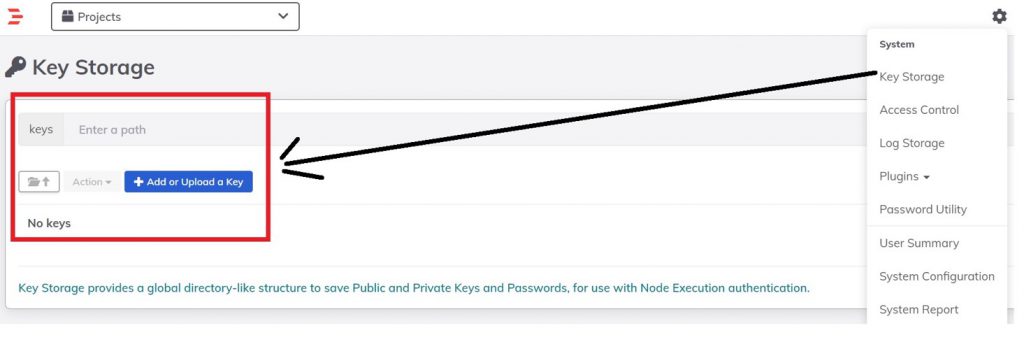
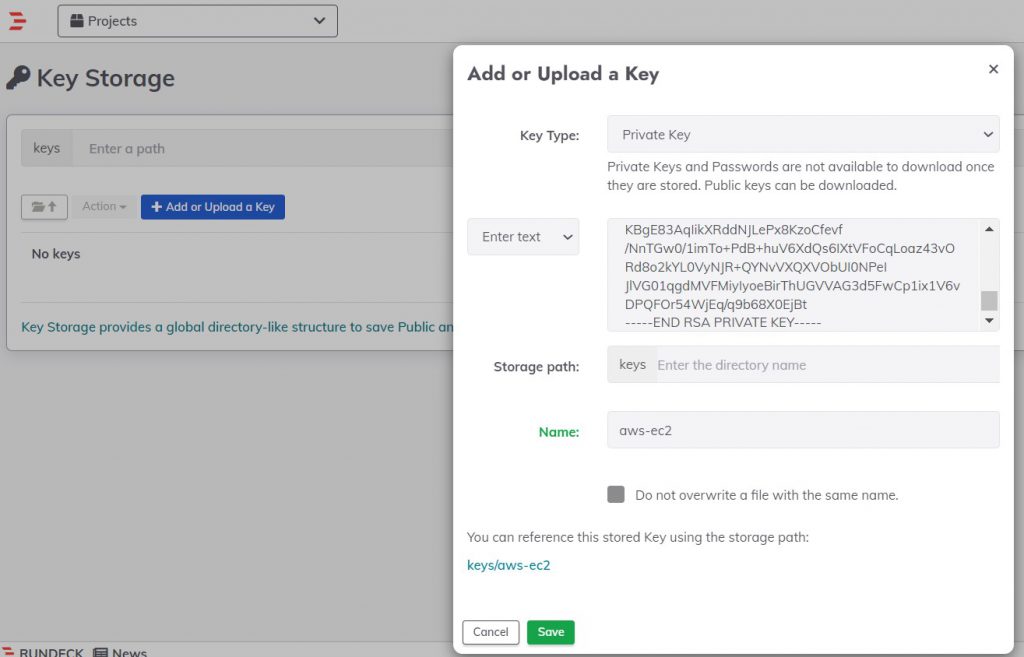
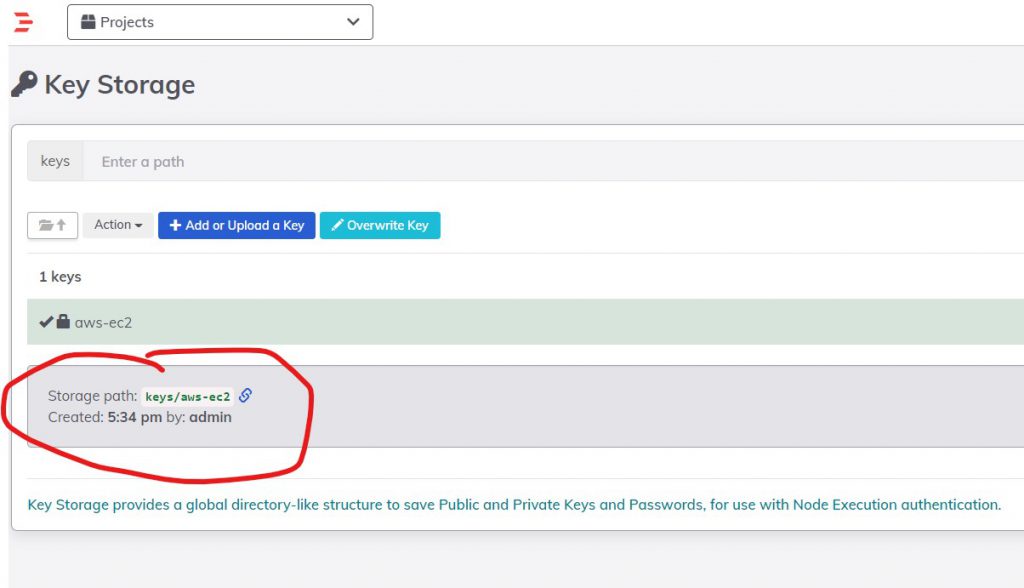
Step 2 – Create a Project
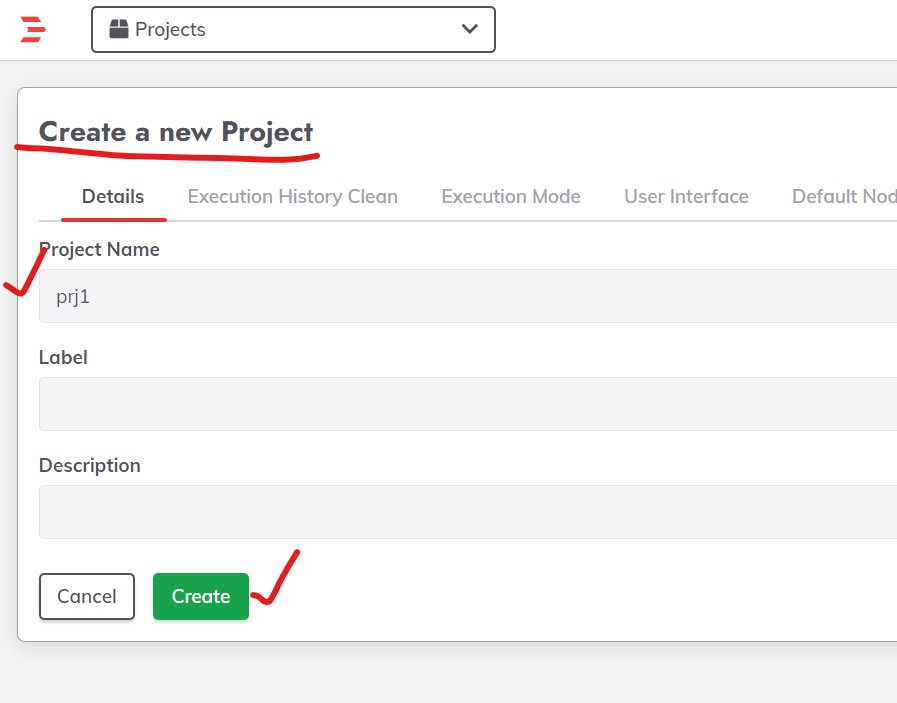
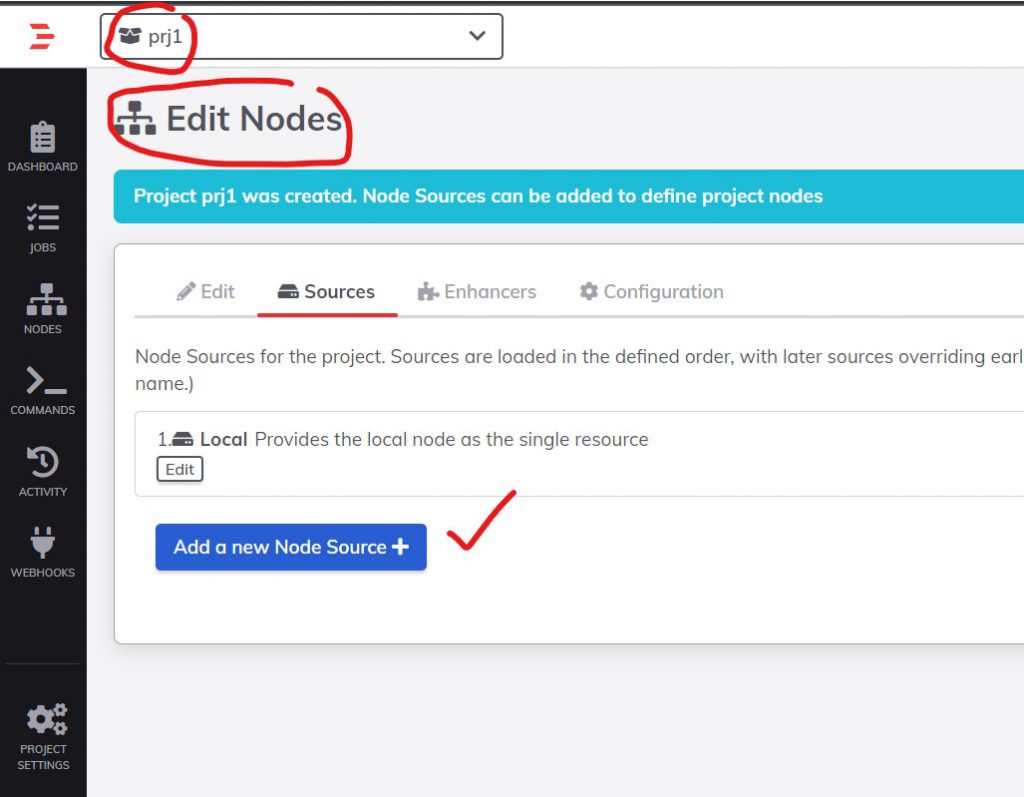
Step 3 – Edit node for the project

Step 4 – Click on the Add new Node Source button.

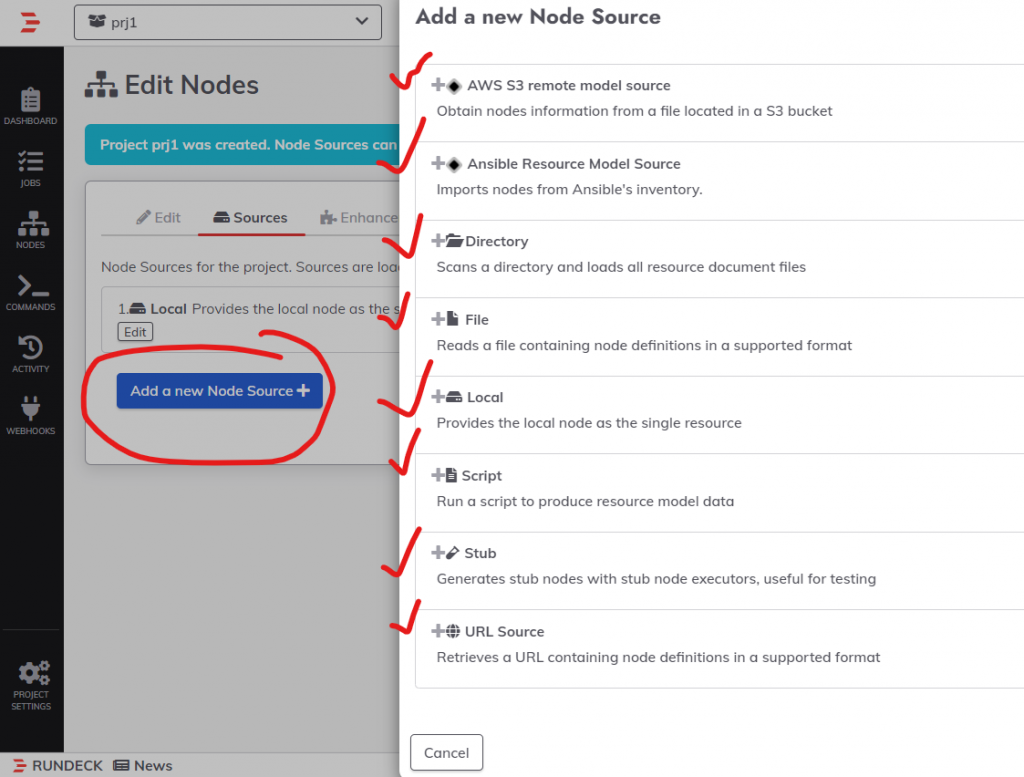
Step 5 – Choose “File”

Step 6 – Choose desire options
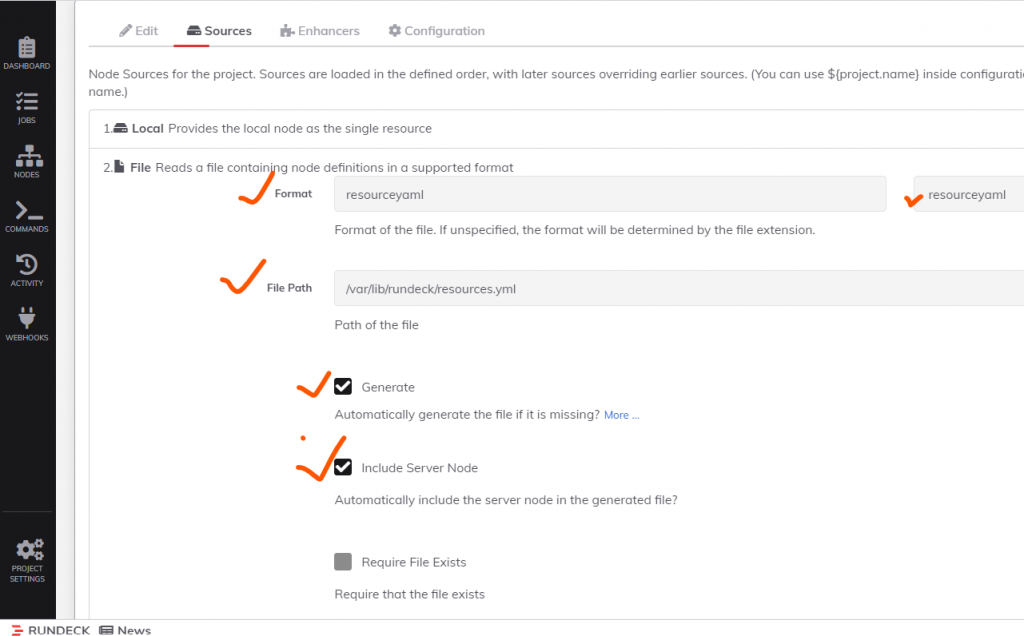
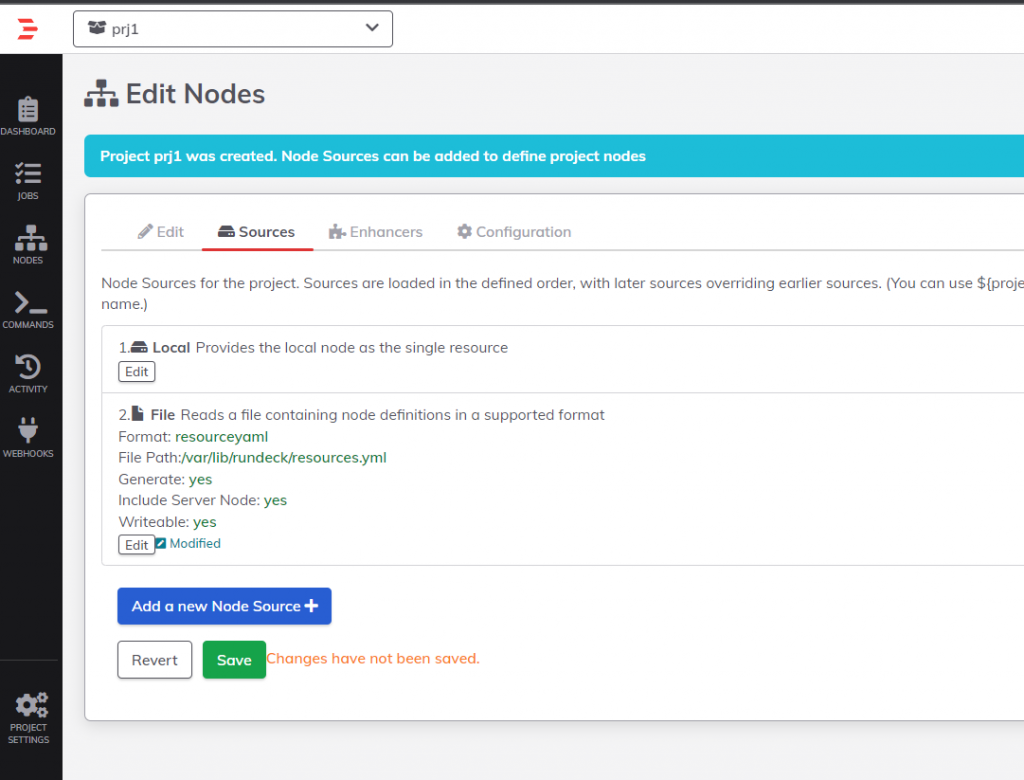
Finally, click on the Save button. The file will be added to the server and ready for a node entry.\
Once created, the file can be edited by clicking on the “Modify” button (Edit tab) where we can add an extra entry corresponding to our remote SSH server.
Step 7 – Update resources.yaml
In the hostname attribute, place the DNS name of our remote node. In username the user who is trying to access the SSH server, In ssh-key-storage-path specifies the path that was created in key storage earlier.
remote-node:
description: Remote SSH server node
hostname: ec2-13-235-210-138.ap-south-1.compute.amazonaws.com
nodename: node1
osArch: amd64
osFamily: unix
osName: Linux
osVersion: 5.11.0-7612-generic
tags: 'node1'
username: centos
ssh-key-storage-path: keys/aws-ec2Code language: JavaScript (javascript)localhost:
nodename: localhost
hostname: localhost
osVersion: 3.10.0-1160.59.1.el7.x86_64
osFamily: unix
osArch: amd64
description: Rundeck server node
osName: Linux
username: centos
tags: ''Code language: JavaScript (javascript)root@ip-172-31-45-102:/etc/ssh/sshd_config.d# vi /var/lib/rundeck/resources.yml
remote-node:
description: Remote SSH server node
hostname: ip-172-31-45-102
nodename: node3
osArch: amd64
osFamily: unix
osName: Linux
osVersion: 5.11.0-7612-generic
tags: 'node1'
username: ubuntu
ssh-authentication: password
ssh-password-storage-path: keys/project/DevOpsSchhool/ubuntu
Code language: PHP (php)remote-node:
description: Remote SSH server node
hostname: 3.111.51.163
nodename: node2
osArch: amd64
osFamily: linux
osName: Linux
osVersion: 5.11.0-7612-generic
tags: 'node2'
username: ubuntu
ssh-authentication: password
ssh-password-storage-path: keys/project/DevOpsSchool/rajpass
remote-node:
description: Remote SSH server node
hostname: 3.111.51.163
nodename: node3
osArch: amd64
osFamily: linux
osName: Linux
osVersion: 5.11.0-7612-generic
tags: 'node3'
username: ubuntu
ssh-authentication: privateKey
ssh-key-storage-path: keys/project/DevOpsSchool/rudeckkey
Code language: JavaScript (javascript)
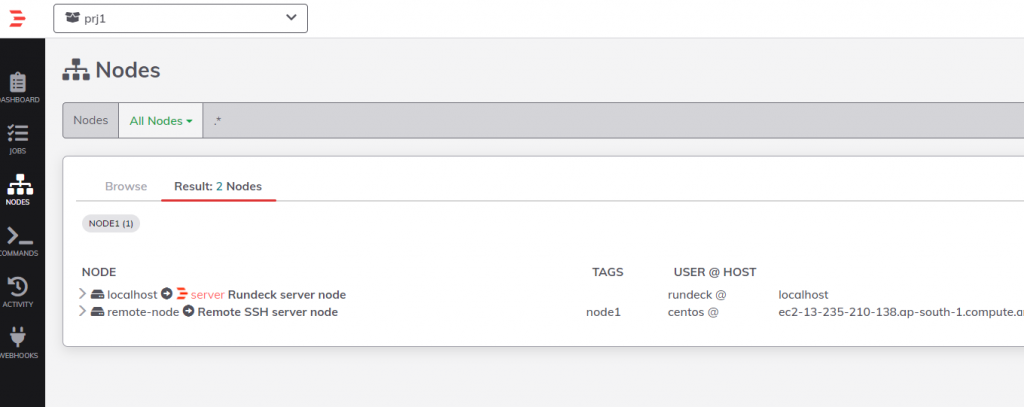
Step 8 – Use Plugins
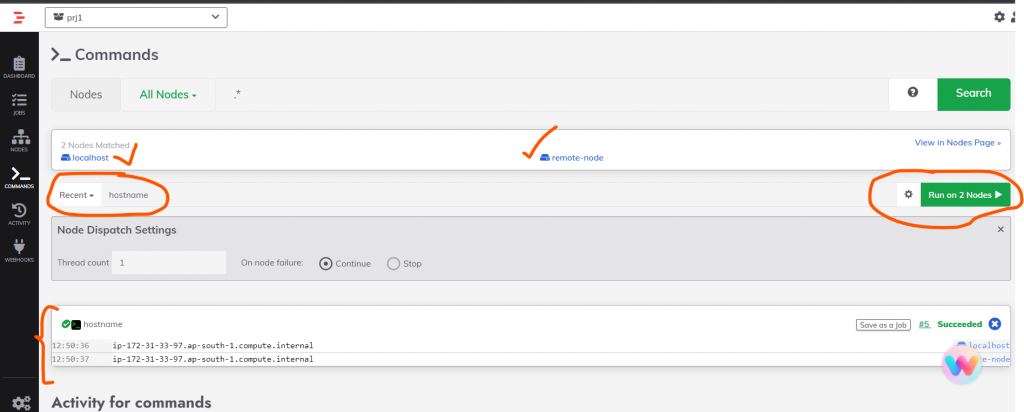
I’m a DevOps/SRE/DevSecOps/Cloud Expert passionate about sharing knowledge and experiences. I have worked at Cotocus. I share tech blog at DevOps School, travel stories at Holiday Landmark, stock market tips at Stocks Mantra, health and fitness guidance at My Medic Plus, product reviews at TrueReviewNow , and SEO strategies at Wizbrand.
Do you want to learn Quantum Computing?
Please find my social handles as below;
Rajesh Kumar Personal Website
Rajesh Kumar at YOUTUBE
Rajesh Kumar at INSTAGRAM
Rajesh Kumar at X
Rajesh Kumar at FACEBOOK
Rajesh Kumar at LINKEDIN
Rajesh Kumar at WIZBRAND
Find Trusted Cardiac Hospitals
Compare heart hospitals by city and services — all in one place.
Explore Hospitals

Hi Rajesh,
Thanks for the clear steps. Still I need help in setting up the file-copier and node-executor. Could you upload the steps for configuring them. Thanks in advance